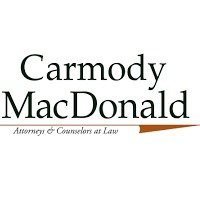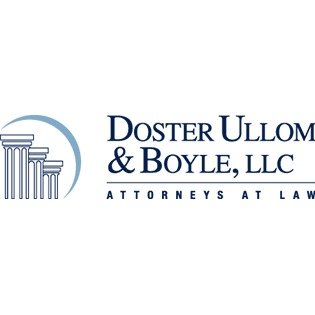Best Tax Increment Financing Lawyers in Missouri
Share your needs with us, get contacted by law firms.
Free. Takes 2 min.
Or refine your search by selecting a city:
List of the best lawyers in Missouri, United States
About Tax Increment Financing Law in Missouri, United States
Tax Increment Financing, commonly referred to as TIF, is a public financing method that municipalities in Missouri use to encourage economic development and redevelopment in specific areas. Under Missouri state law, TIF allows local governments to capture the increased tax revenues that result from improvements made to a designated district. These captured taxes are then used to reimburse developers or pay off bonds issued for infrastructure, environmental remediation, site preparation, or other project costs. The goal of TIF in Missouri is to stimulate private investment in areas that are considered “blighted,” underutilized, or in need of revitalization, ultimately boosting local economies and community resources.
Why You May Need a Lawyer
Tax Increment Financing can involve complex legal, financial, and procedural issues. Individuals or organizations may need a lawyer for several reasons, including:
- Drafting, reviewing, or negotiating development agreements with municipalities or developers
- Ensuring compliance with Missouri TIF statutes and local ordinances
- Assisting with the preparation of required TIF plans, reports, and public notices
- Representing property owners or residents concerned about how a TIF project may impact their community, taxes, or property values
- Resolving disputes over the proper use of TIF funds or challenges to TIF approvals
- Guidance on the steps to create or dissolve a TIF district
- Advising on the tax implications for property owners, businesses, or developers involved in TIF areas
Given the unique requirements and procedural steps involved, legal counsel is strongly recommended when navigating TIF matters in Missouri.
Local Laws Overview
In Missouri, the use of TIF is governed primarily by the Real Property Tax Increment Allocation Redevelopment Act found in Chapter 99 of the Missouri Revised Statutes. Key aspects of the law include:
- Definition of eligible TIF areas as “blighted,” “conservation,” or “economic development” areas
- Requirement for a detailed TIF redevelopment plan, public hearings, and approval by the local governing body (often a city council or county commission)
- Mechanism for capturing the increase in property tax (and sometimes economic activity tax) revenues generated within the TIF district
- Establishment of a TIF Commission, which provides recommendations on TIF proposals
- Mandates for required findings such as the “but-for” test - demonstrating the project would not occur in the area without TIF assistance
- Limits on the duration of a TIF district, typically 23 years from approval, with some exceptions
- Reporting requirements and oversight from the Missouri Department of Economic Development
Additional requirements or restrictions may be imposed by local ordinances or voter approval, depending on the municipality.
Frequently Asked Questions
What is the main purpose of Tax Increment Financing in Missouri?
The primary purpose of TIF is to promote economic growth and redevelopment by encouraging private investment in areas that are struggling or underdeveloped, using future increases in tax revenue to reimburse upfront development costs.
How does a TIF district get approved?
A TIF district must be proposed in a redevelopment plan, reviewed by a TIF Commission, subjected to public hearings, and ultimately approved by the governing body of the municipality or county.
What kinds of projects are eligible for TIF in Missouri?
Eligible projects generally include redevelopment or construction in blighted, conservation, or economic development areas, such as urban renewal, infrastructure upgrades, retail centers, and housing developments.
How long does a TIF district last in Missouri?
By law, a TIF district typically has a maximum lifespan of 23 years before it must be dissolved, though some exceptions or extensions may apply under specific circumstances.
Does TIF affect my property taxes as a resident?
Property owners within a TIF district continue to pay property taxes at standard rates; however, the incremental increase in taxes derived from higher property values is redirected to fund the TIF project instead of going to general public services.
Who monitors and reports on the use of TIF funds?
The Missouri Department of Economic Development oversees TIF reporting, but municipalities are responsible for ensuring funds are used in accordance with state law and are subject to public and governmental scrutiny.
Can TIF be used for private development?
TIF is often used to support private development projects, provided they meet statutory requirements and deliver public benefits such as increased employment, economic activity, or infrastructure improvements.
How can residents or businesses express concerns about a proposed TIF?
Community members can participate in public hearings, contact their local representatives, and submit formal comments or objections during the approval process of the TIF plan.
Are there restrictions on what TIF funds can be spent on?
Yes, state law defines eligible uses, including public infrastructure, demolition, land acquisition, environmental remediation, and utility improvements specifically related to the redevelopment project.
Is legal representation necessary in TIF proceedings?
While not always required, legal guidance is highly recommended, especially for developers, affected property owners, and anyone seeking to challenge or participate meaningfully in the TIF process.
Additional Resources
Several resources and organizations can provide helpful information or support concerning Tax Increment Financing in Missouri:
- Missouri Department of Economic Development - reporting and compliance resources
- Your local city or county government TIF Commission or economic development office
- Missouri Municipal League for public guides and advocacy information
- Missouri Bar Association for referrals to attorneys experienced in TIF law
- Missouri Revised Statutes, Chapter 99 for the full legislative text governing TIF
- Local public libraries and government websites for records of TIF projects and public hearings
Next Steps
If you believe that Tax Increment Financing may affect your property, business, or community - or if you are a developer seeking assistance with a TIF application - consider taking the following steps:
- Contact your local municipality’s planning or economic development department to obtain information about any current or proposed TIF districts
- Request public records related to the TIF redevelopment plan, agreements, and hearings
- Consult with an attorney who practices in municipal or real estate law and has experience with TIF regulations in Missouri
- Prepare and organize any relevant documents, such as property records, development proposals, or correspondence with city officials
- Participate in upcoming public meetings or hearings to voice your support, concerns, or questions
- Continue to educate yourself using the resources listed above and remain proactive in monitoring local government activity regarding TIF
Legal advice tailored to your specific situation is invaluable when navigating the complexities of Tax Increment Financing in Missouri.
Lawzana helps you find the best lawyers and law firms in Missouri through a curated and pre-screened list of qualified legal professionals. Our platform offers rankings and detailed profiles of attorneys and law firms, allowing you to compare based on practice areas, including Tax Increment Financing, experience, and client feedback.
Each profile includes a description of the firm's areas of practice, client reviews, team members and partners, year of establishment, spoken languages, office locations, contact information, social media presence, and any published articles or resources. Most firms on our platform speak English and are experienced in both local and international legal matters.
Get a quote from top-rated law firms in Missouri, United States — quickly, securely, and without unnecessary hassle.
Disclaimer:
The information provided on this page is for general informational purposes only and does not constitute legal advice. While we strive to ensure the accuracy and relevance of the content, legal information may change over time, and interpretations of the law can vary. You should always consult with a qualified legal professional for advice specific to your situation.
We disclaim all liability for actions taken or not taken based on the content of this page. If you believe any information is incorrect or outdated, please contact us, and we will review and update it where appropriate.
Browse tax increment financing law firms by city in Missouri
Refine your search by selecting a city.
















